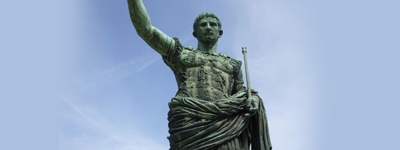
By Sumitra Paul Chatterjee
2 April, 2018
My issue with Organizational Culture is that – either it is overwhelming or it’s taken for granted. While I genuinely appreciate the emphasis organizations’ are laying on culture; I do feel that our understanding of the concept is still quite fuzzy.
Don’t believe me? Try this – Healthy, Positive, Engaging Culture. And of course, the not so recent one but relatively new – Diversity and Inclusion!
Don’t get me wrong – I get it that it is a bit of a driving factor for many of us when changing jobs. I met up with more than 20 young professionals who weren’t happy with their current organizational culture and hence wanted to change. Except, all of them had very different understanding of what ‘culture’ really meant!
And, there were a few who had left, joined a new organization and felt the culture in their previous organization was better.
I asked ‘why’. Shilpa Singh who commuted from Noida to Gurgaon (80 KMs approximately) every day for the past eight years and have recently made a change to a company in Noida said, she couldn’t see herself fitting in into the ‘Culture’ of the new organization and was seriously considering re-joining the company she left. Clearly, I am baffled because I didn’t have that option when I got married.
CULTURE – A WAY OF LIFE
My interactions with these young professionals pushed me to first break-down the term ‘culture’. I met with a lot of experts from the field. I read and researched a lot and finally, enlightenment (if you may say so)! I firmly feel, culture is a set of strategies that we use to respond to an environment. Period!
(I do have a way with keeping things simple
ORGANIZATIONAL CULTURE – A CHOICE
Going by my definition, an organization’s culture should be one that allows it to function, react, and respond to its business environment seamlessly. It is the way an organization chooses to achieve not just its business goals and objectives but also harmony with the market it is in. The question then is who determines it – the people or the organization? Beyond the fancy office, luminous logo and expensive taglines; who is the organization? Who is accountable?
CULTURE AND LEADERSHIP – MYTH OR REALITY?
Happy people believe they are accountable for their organization’s culture but wait a minute – I am not a happy being. I am dark and twisted. I don’t even like happy human beings (oh, so gullible and vulnerable). And, I have my other reasons. So, let’s try this again – Who is accountable?
Let us cast the net a little further.
Remember Infosys ver. 2014. A press release read and I quote ‘The Infosys Board of Directors is pleased to announce the selection of Dr. Vishal Sikka as the Chief Executive Officer and Managing Director (CEO & MD) of the company.’ And the rest, of course is history!
I, in all my not so infinite years of wisdom, have seen, experienced and witnessed that a change in leadership inevitably brings about a change in the culture of the organization. I have seen success as well as failure stories for this kind of change. Not so difficult to understand really – remember, how step – moms are mostly the villains in fairy tales? To put things into perspective, all new leaders are step moms who want to do things very differently in an old house with not so old children.
What I am trying to say is that this completely challenges my belief in what an organization’s culture should be but, paradoxically, reinforces my understanding of culture.
Happy people, are you listening (or reading)?
CULTURE – NOT ISOLATION BUT INTEGRATION
Onto a more pressing matter – does it really matter what the culture is or was or should be or should it be about the relevance of culture with the current scenario? Alignment and harmony, isn’t these what culture should be all about?
All good organizations make a fair attempt to keep their employees aligned but sometimes in this attempt the relevance is lost. While on the other hand sometimes people are not aligned.
Every employee comes with a certain set of values and his / her own culture and embracing a change is never easy.
So, is there something between relevance and alignment?
My money is on ‘belief’. But how do you instil belief? I care for you or I mean no harm to you – What will work?
Bad news is that it is difficult. Good news is that at least you now know what the choices are and they are between the above two.
Our belief can be an outcome of our experiences, the current state or the way we see the future.
What is the picture that will work for your organization – past, present or future?
Parting shot – To all you happy people (.5% of all the working professionals), say it aloud – Belief will hold relevance and alignment together! I believe.
 Sumitra Paul Chatterjee heads Content Design and Development at I Train Consultants (I) Pvt. Ltd. With over 12 years of experience in Learning & Development domain; she has been associated with more than 200 different organizations as a Coach, Consultant and Instructional Designer.
Sumitra Paul Chatterjee heads Content Design and Development at I Train Consultants (I) Pvt. Ltd. With over 12 years of experience in Learning & Development domain; she has been associated with more than 200 different organizations as a Coach, Consultant and Instructional Designer.
Subscribe To Our Newsletter
Be part of our community and receive updates, best offers and freebies directly in your inbox.
Contoole
With over 15 years of experience and having catered to the learning needs of over 400+; we are committed to giving more Power to the Learners…
© 2022 Contoole.com. All Rights Reserved.

